Should America Keep Celebrating Thanksgiving?
Sean Sherman argues that we need to decolonize Thanksgiving, while Chase Iron Eyes calls for replacing Thanksgiving with a “Truthsgiving.”
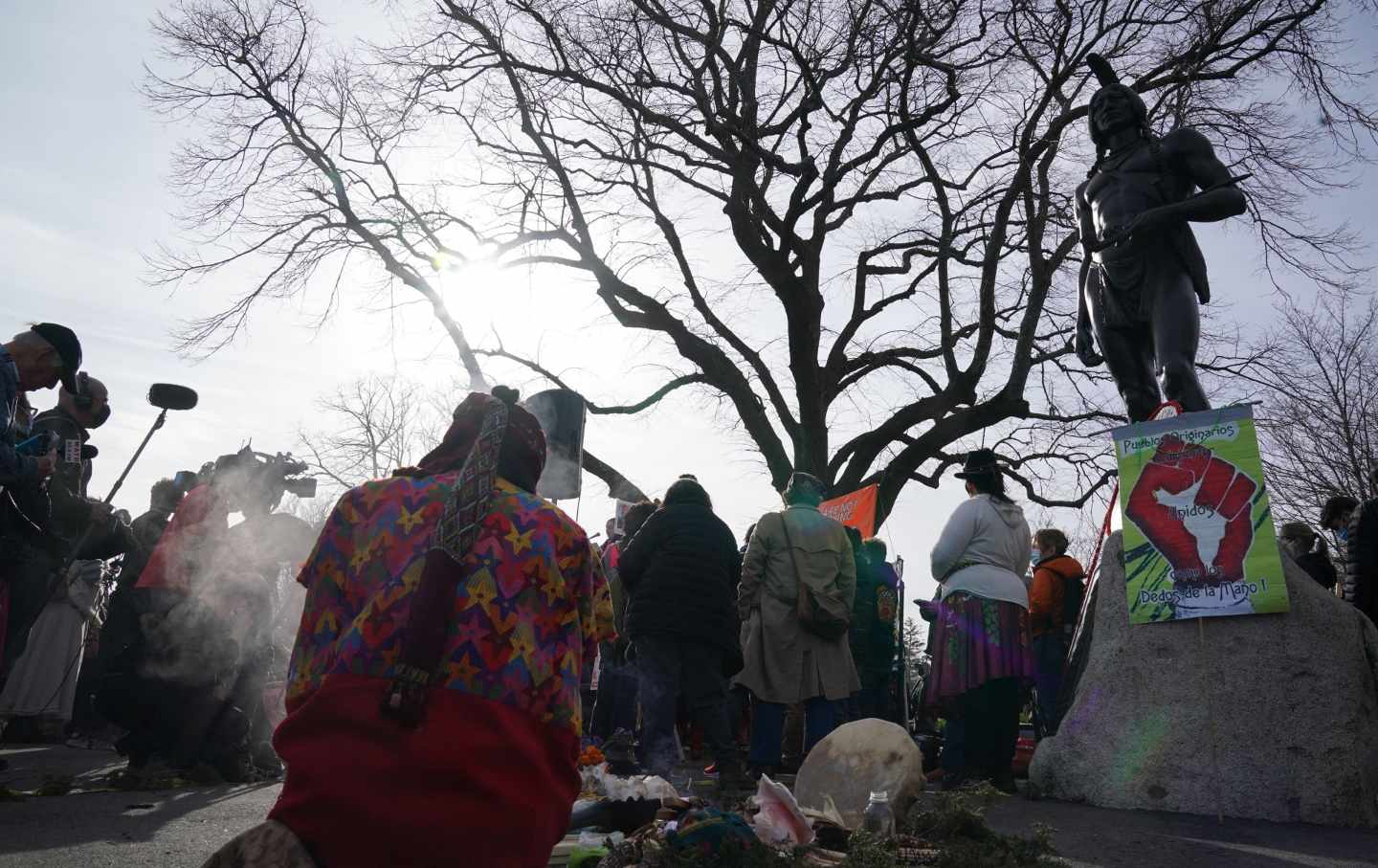
Yes!
I am a proud member of the Oglala Lakota Nation, born on the Pine Ridge Indian Reservation in South Dakota. My early memories of Thanksgiving are akin to those of most Americans—meat-and-potatoes dishes inspired by Eurocentric 1960s-era cookbooks.
For many Americans, the image of Thanksgiving is one of supposed unity: the gathering of “Pilgrims and Indians” in a harmonious feast. But this version obscures the harsh truth, one steeped in colonialism, violence, and misrepresentation. By exploring the Indigenous perspective on Thanksgiving, we can not only discern some of the nuances of decolonization but gain a deeper understanding of American history.
The sanitized version of Thanksgiving neglects to mention the violence, land theft, and subsequent decimation of Indigenous populations. Needless to say, this causes tremendous distress to those of us who are still reeling from the trauma of these events to our communities.
Thanksgiving’s roots are intertwined with colonial aggression. One of the first documented “Thanksgivings” came in 1637, after the colonists celebrated their massacre of an entire Pequot village.
I do not think we need to end Thanksgiving. But we do need to decolonize it. That means centering the Indigenous perspective and challenging the colonial narratives around the holiday (and every other day on the calendar). By reclaiming authentic histories and practices, decolonization seeks to honor Indigenous values, identities, and knowledge. This approach is one of constructive evolution: In decolonizing Thanksgiving, we acknowledge this painful past while reimagining our lives in a more truthful manner.
Indigenous contributions—including turkey, corn, beans, pumpkins, cranberries, sweet potatoes, and wild rice—are central to the Thanksgiving menu. By embracing these foods and supporting Native American producers and practices, we can ground the celebration in a genuine appreciation of this land and its original custodians—the same way that we celebrate European contributions to the American plate.
The journey to decolonize Thanksgiving is also an opportunity for a broader movement to decenter colonial perspectives around the world. The University of Saskatchewan has possibly the most succinct definition of colonialism: “the policy or practice of acquiring full or partial political control over another country, occupying it with settlers, and exploiting it economically.” Western colonization has often exhibited a complete disregard for Indigenous customs and cultures that value diversity and a harmonious relationship with the land. Decolonization in this context would mean resisting the dominance of colonial influences globally and reclaiming Indigenous knowledge, values, and, of course, foodways.
The Western colonial diet has almost completely ignored the nutritional and culinary diversity of North America, just as other Indigenous cultural practices have been decimated by Eurocentric forces. At our restaurant, Owamni, and in tribal communities everywhere, food is a celebration of history, culture, and environmental stewardship. When we strip away the ills of colonization, we demand the shared human right of access to healthy, culturally significant, and regionally appropriate foods.
These values can be applied not only during Thanksgiving but every day of our lives, and would drastically change the way we all live on this planet. Indigenous values shift the focus toward acknowledging our shared human experiences and rights, one of which is the profound relationship between humans and food—and not just any food, but our own traditional foods, stewarded in a way that is healthy for our bodies, minds, and souls. The way we can save Thanksgiving is by investing as many resources in food production, water, land access, and education as we do in our military and bombs. We can save Thanksgiving by working toward a more unified world on this planet.
This Thanksgiving, let’s break the bonds of colonization and capitalism—not just on our plates but in our perspectives, too. I want a Thanksgiving where I can be thankful that I live in a world where diversity is celebrated, and where every person’s connection to their food, land, and history is respected and cherished. I would like to be thankful not only for a more inclusive world but for a more accurate accounting of the past. This inclusivity and commitment to truth would honor Indigenous people, but also every person on the planet. Banning histories as a righteous crusade to eradicate different opinions is wrong; understanding true histories is necessary.
A decolonized Thanksgiving could transform a holiday marred by historical amnesia into a celebration of genuine gratitude, unity, and recognition of our rich Indigenous heritage. It would offer a clearer lens through which to see the entire world.
Let us drop food and knowledge, not bombs.
Sean Sherman
No!
In 1620, English sailors arrived on the Mayflower and landed at Plymouth Harbor. A year later, the English celebrated their first Thanksgiving—alone, until a Wampanoag defense party arrived, wanting to know why gunshots were being fired.
Our cherished national myth is that Thanksgiving originated with Natives welcoming friends who were fleeing religious persecution and then celebrating the harvest together. But the Wampanoags were not there to welcome or celebrate with foreigners. They had a mutual-defense pact with the Pilgrims and likely arrived out of duty. Yet over time, a young America branded this interaction as a “cohosted” Thanksgiving. George Washington celebrated Thanksgiving in 1789, and John Adams and James Madison followed suit. Abraham Lincoln declared Thanksgiving a national holiday, trying to unite Americans during their Civil War. Aliens in a foreign land need to invent new myths and identities to provide themselves with a sense of people, purpose, and place.
Popular
“swipe left below to view more authors”Swipe →There is another, more illustrative Thanksgiving story not often shared in the mainstream. During this other early Thanksgiving, in 1637, European settlers gave thanks after their men returned safe from a raid on the Pequot, an Indigenous tribe living in present-day Connecticut, which led to the massacre of between 400 and 700 women, children, and men and the enslavement of those who survived. In this story, there is no mutual thanks; there is no giving. There is only consumption and taking.
You want to give thanks? Give thanks to Native nations who granted settlers some form of legitimacy—by entering into treaties recognizing them—to be in our homelands. Those treaties recognized that Americans are now under our spiritual custody and have rights to pass through our country. As soon as Americans were able to impose their will on Indigenous nations, the treaties were violated. Some Indigenous nations do not have treaties, and legally this means their nations should be intact. Those of us who have treaties have defensible legal claims to lands that are now occupied by private American settlers under US law. The United States is still not able to deliver clear title to the lands because they were illegally and unilaterally annexed by the United States. We know it was not the fault of American settlers who bought the stolen land. But in order to promote reconciliation, we want private landowners to support the transfer of federal and state lands back to the tribal nations that have valid claims to them. Give thanks by honoring the treaties, by giving land back.
Give thanks by protecting the lands and waters that sustain us, instead of compelling law enforcement to protect the property- and capital-owning class, even when the owner class has “legal permits” to destroy a river or poison a land.
Give thanks to the Native nations who created the world that we inherit today. Learn that 60 percent of all food consumed to this day was discovered, bioengineered, and/or cultivated by Indigenous cultures in the Americas, including corn, beans, squash, and tomatoes. Indigenous people developed many of the agri/horticultural practices, including raised-bed farming, still in use in the United States. “American” democracy itself was derived from observations of the Iroquois confederacy. The interstate highways and trail systems trace Indigenous trade routes. Anesthetics, rubber, sunglasses, kayaks, canoes, plant medicines, oral contraceptives, and paleo, organic, and non-GMO lifestyles derive from Indigenous practices. Thank Indigenous people for teaching humanity that food and water are medicine. Thank Indigenous people for defending your natural birthrights, human rights, constitutional and other conceivable rights from corporate encroachment.
In those early years of colonial settlement, Indigenous families, saviors of the interlopers, nursed them back to health, only to be slaughtered by them and subjected to decimation by biological warfare. To this day, the Doctrine of Discovery—the foundation of federal law permitting settlers to take possession of land they “discovered”—imposes a set of Christian-based “laws” and institutional thinking that confines Indian existence “legally,” politically, and economically. The reservation system, “blood quantum,” and the invention of the federally recognized tribes will lead to our extinction as nations, as distinct political entities. Thanksgiving is a lie in the same way Manifest Destiny is a lie: This continent was not a pristine, empty land that had yet to be put to “profitable” use in the ways “civilized” extractive alien economies defined it.
November is already Native American Heritage Month. Thanksgiving could be something better: a day to appreciate the truth of American history and Native Americans’ contributions to our lives. Let’s tell a different story by dropping the lie of Thanksgiving and begin a Truthsgiving.
Chase Iron Eyes
Thank you for reading The Nation
We hope you enjoyed the story you just read, just one of the many incisive, deeply-reported articles we publish daily. Now more than ever, we need fearless journalism that shifts the needle on important issues, uncovers malfeasance and corruption, and uplifts voices and perspectives that often go unheard in mainstream media.
Throughout this critical election year and a time of media austerity and renewed campus activism and rising labor organizing, independent journalism that gets to the heart of the matter is more critical than ever before. Donate right now and help us hold the powerful accountable, shine a light on issues that would otherwise be swept under the rug, and build a more just and equitable future.
For nearly 160 years, The Nation has stood for truth, justice, and moral clarity. As a reader-supported publication, we are not beholden to the whims of advertisers or a corporate owner. But it does take financial resources to report on stories that may take weeks or months to properly investigate, thoroughly edit and fact-check articles, and get our stories into the hands of readers.
Donate today and stand with us for a better future. Thank you for being a supporter of independent journalism.
More from The Nation
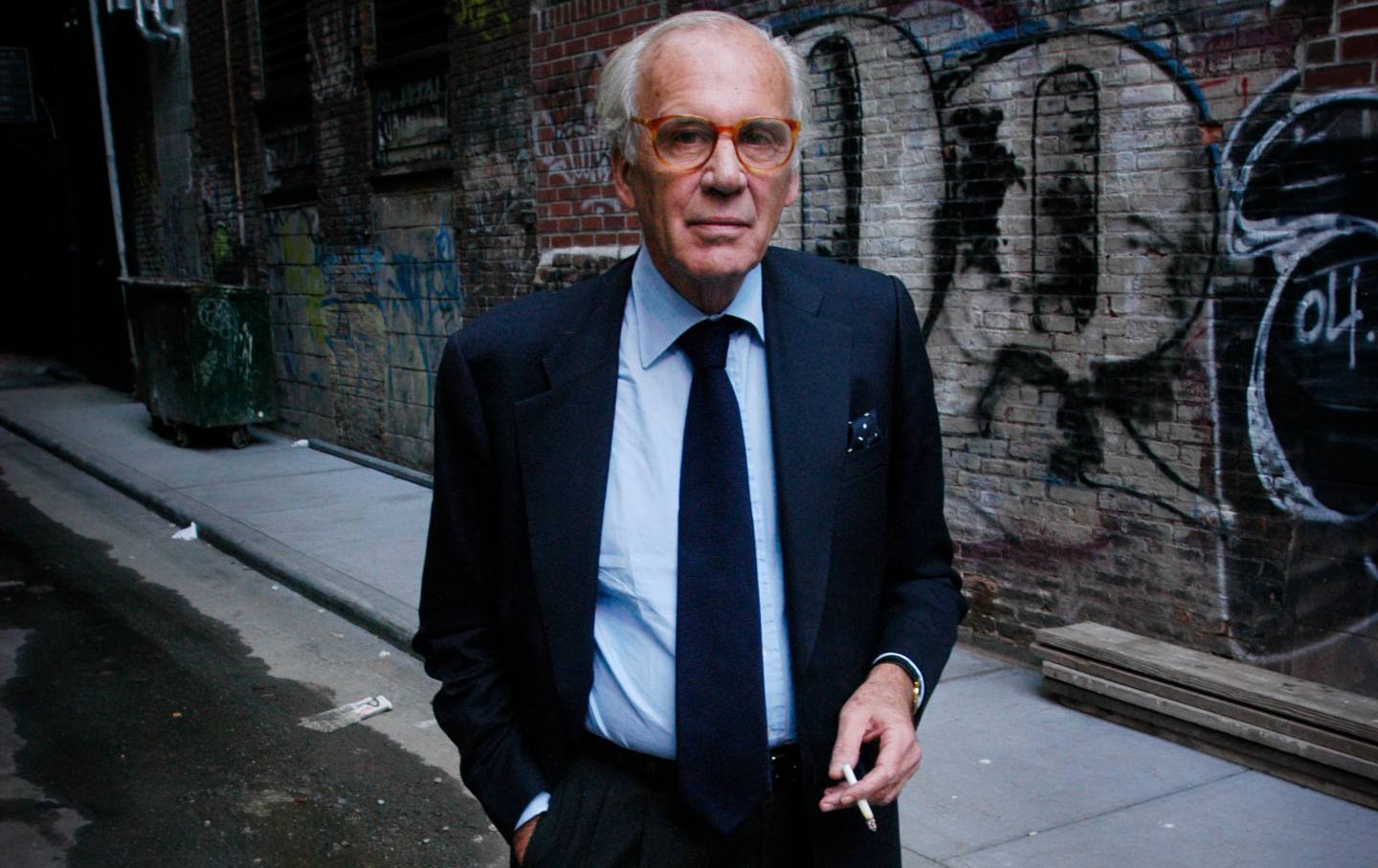
Lewis Lapham Salvaged From History What Was Useful, Beautiful, and True Lewis Lapham Salvaged From History What Was Useful, Beautiful, and True
Writer Lewis H. Lapham, longtime editor of Harper’s Magazine and the founder of Lapham’s Quarterly, died in Rome. He was 89.
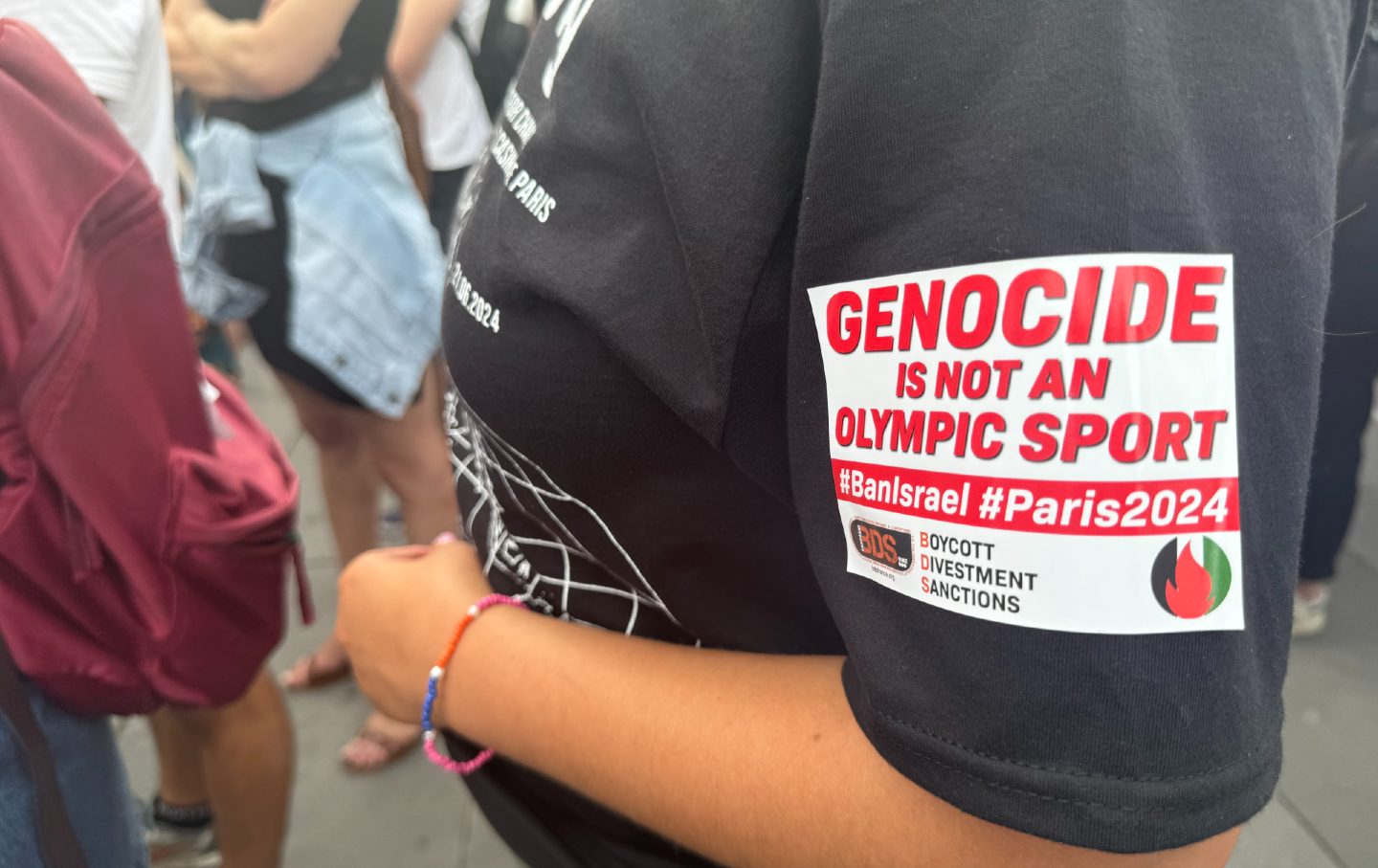
The Paris Olympics Are Kicking Off With Protests The Paris Olympics Are Kicking Off With Protests
“The Olympic Games are profoundly disrupting the lives of French people,” the protesters wrote in a joint statement.“The question then arises: Who benefits from the Games?”
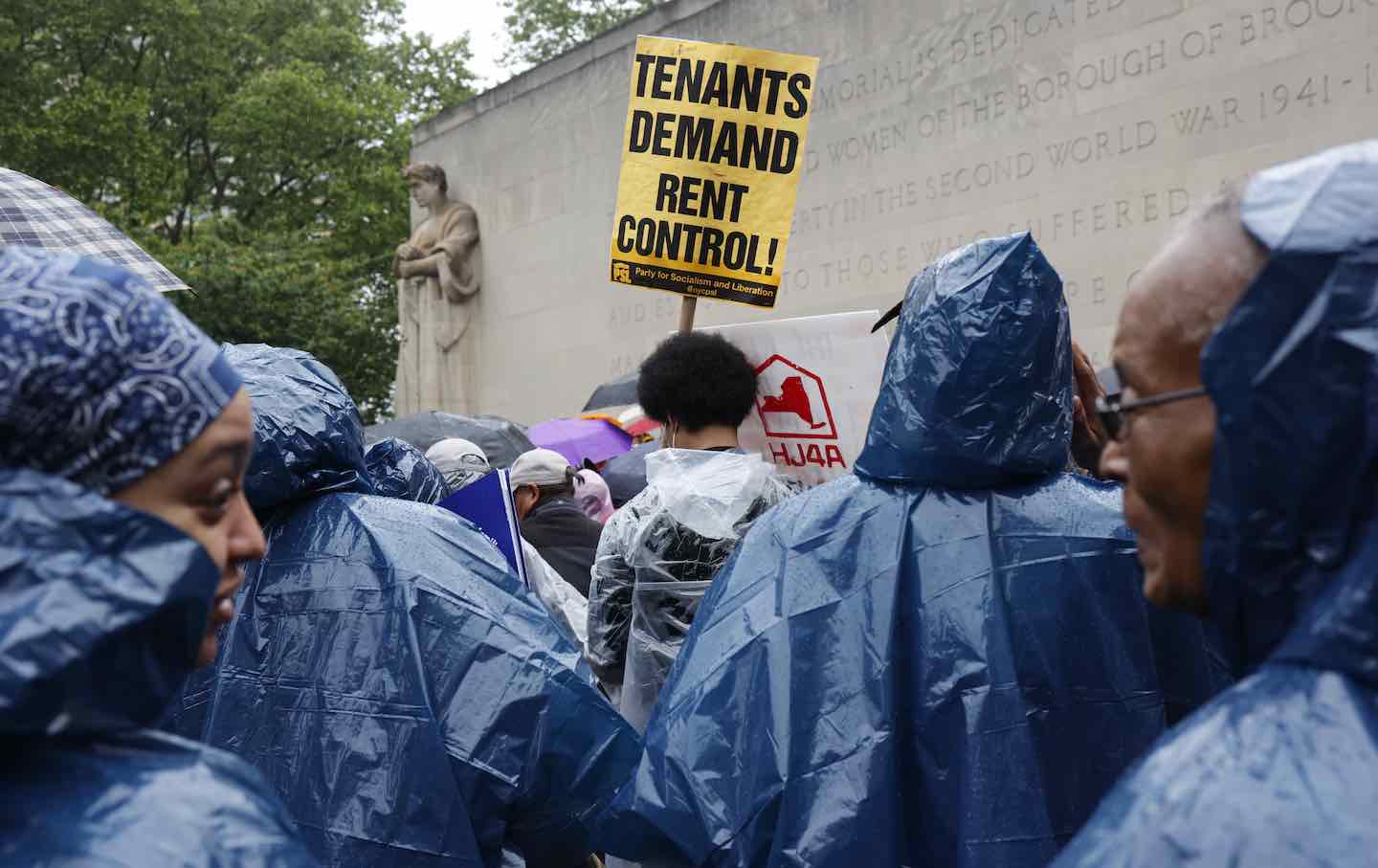
Biden Said Rent Cap. Here’s What Tenant Organizers Say Must Happen Next. Biden Said Rent Cap. Here’s What Tenant Organizers Say Must Happen Next.
The president called on Congress to act, but he could enact a rent stabilization policy with a stroke of his pen. Tenant leaders say they will keep organizing until it happens.

Why There Are No Trans Women Competing at the Paris Games Why There Are No Trans Women Competing at the Paris Games
There are at least two trans nonbinary athletes—Quinn and Nikki Hiltz—and they’re impossible not to cheer for.

The Appalling Social Cleansing of Olympic Paris The Appalling Social Cleansing of Olympic Paris
In the last year, an estimated 12,500 vulnerable Paris residents were forced from their homes.
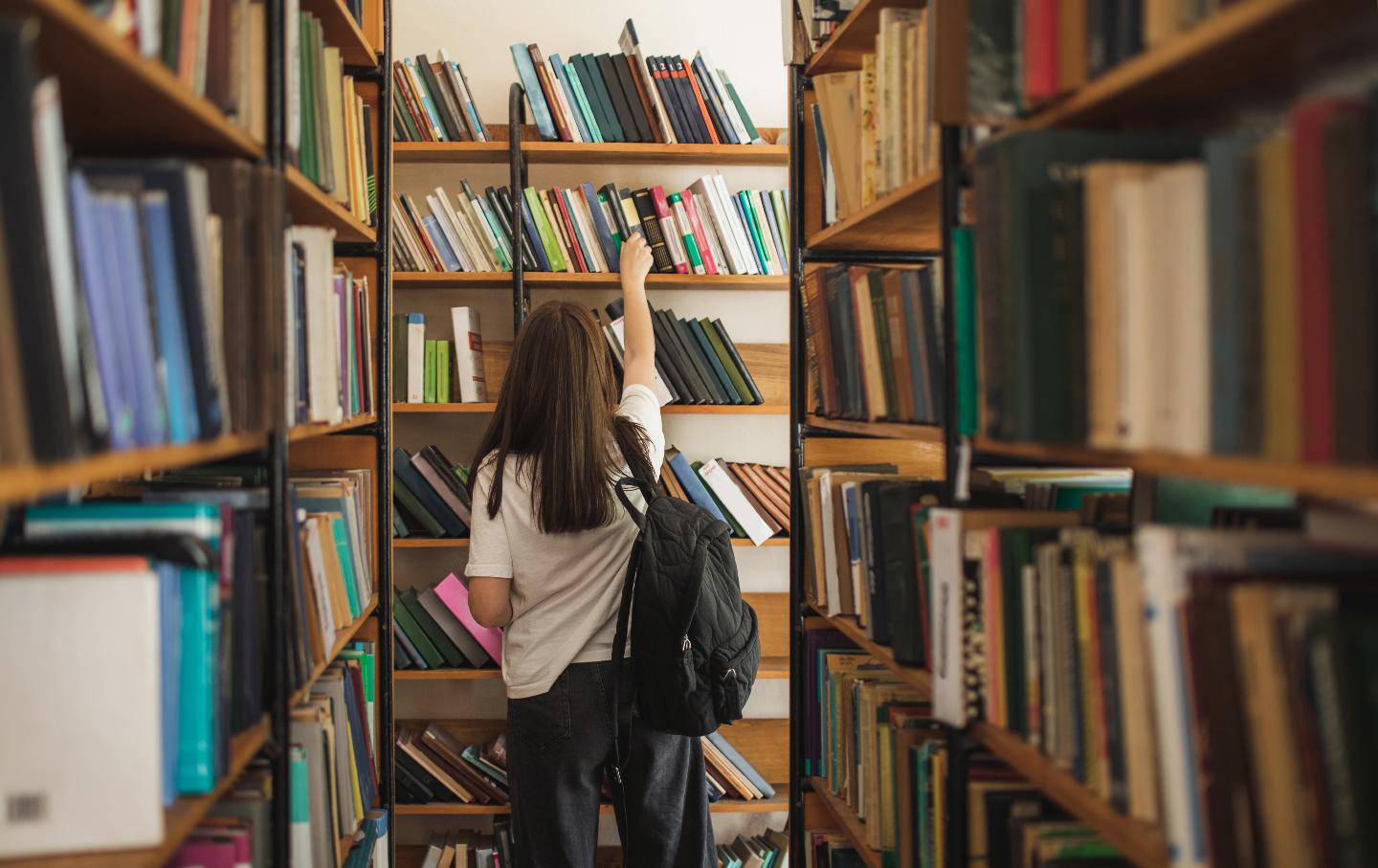
At My High School, the Library Is for Everything but Books At My High School, the Library Is for Everything but Books
The administration has rebranded our library as a communal space for doing almost everything except reading.


